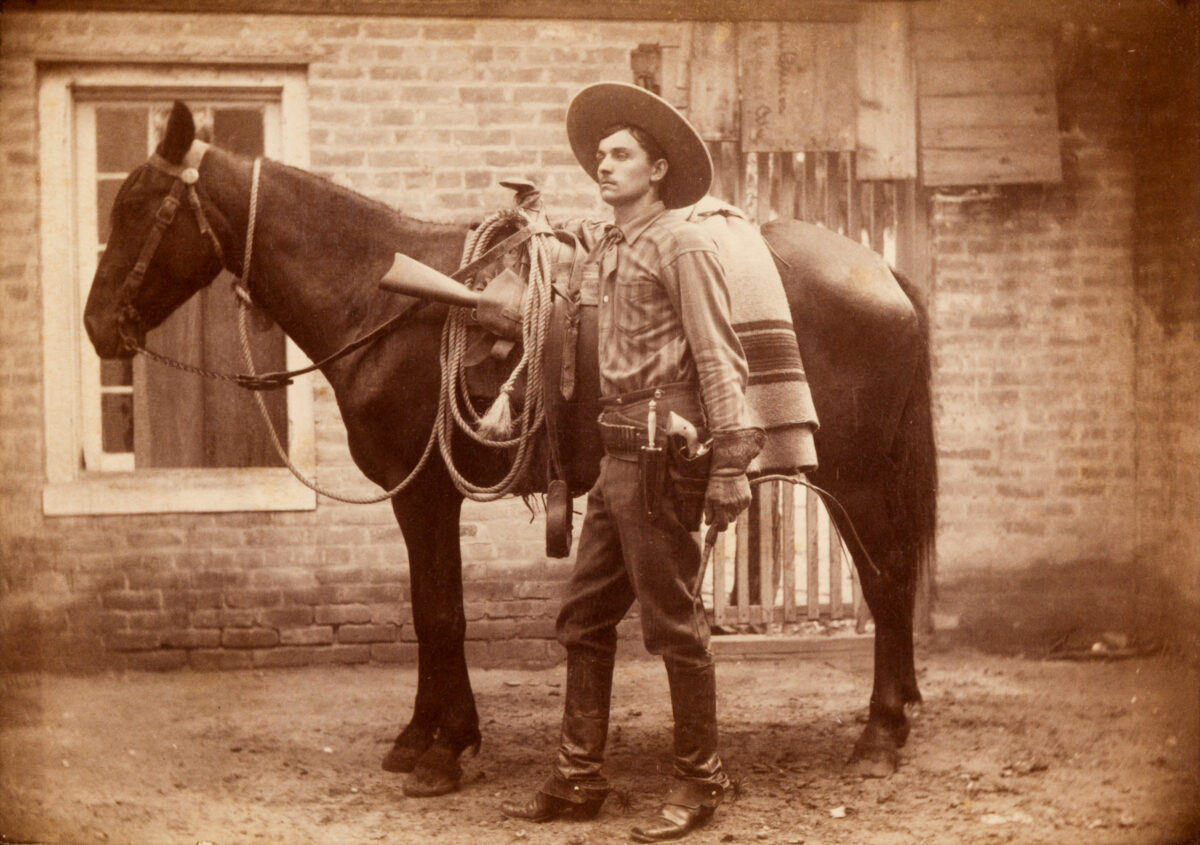Texas Ranger Frank L. Schmid was 22 years old when he posed for this 1888 portrait. A year later he and a troop of Rangers would deploy to Fort Bend County, Texas, to mediate a political feud remembered today as the Jaybird-Woodpecker War. Grievously wounded keeping the peace, young Schmid would be among the few casualties in that clash over the fate of democracy in southeast Texas.
In the lead-up to the Civil War sparsely populated Fort Bend County depended on a plantation-based economy, its population in 1860 recording twice as many slaves as white residents. After Reconstruction the county’s newly enfranchised Black majority moved to elect candidates who supported racial equality. Many such candidates were Republicans, and some were Black. This did not go over well with once-dominant white Democrat officials who envisioned a government by whites, for whites, stretching into perpetuity.
By the 1880s Fort Bend’s political landscape was riven between the exclusionary old guard white Democrats, nicknamed “Jaybirds,” and a smaller group of black-supported officials, nicknamed “Woodpeckers,” who’d assumed office as Republicans but out of political necessity had reverted to nominal Democratic affiliation. Threats and murders became common enough that the state called in Texas Rangers to the county seat of Richmond to supervise the 1888 election. Though the Woodpeckers swept the ballot, the issue was far from settled, and the violence escalated.
On Aug. 16, 1889, a brief exchange of shots sparked the full-on “Battle of Richmond,” with gunmen from the opposing factions firing from houses, the National Hotel and the courthouse. Sheriff Tom Garvey, a Woodpecker, quickly found himself outnumbered by Jaybirds who forced the sheriff and friends to hole up in the courthouse. In the midst of the fray were the Rangers, seeking in vain to keep the peace. Garvey was among the handful of people killed that day. Shot multiple times, Schmid succumbed to the lingering effects of his wounds on June 27, 1893. He was 26 years old.
In the wake of the battle, Texas Governor Sul Ross declared martial law and went to Richmond to mediate a reorganization of the local government. Dissolution of the Woodpecker-majority administration, however, left only Jaybird politicians with the wherewithal to apply as replacements. The ostensibly temporary new Jaybird government soon outlawed black citizens from voting in Democratic Party primaries. With the resulting dearth of sympathetic candidates, black voters lost any power they’d gained in the county until 1953 when the U.S. Supreme Court declared white-only primaries unconstitutional.
historynet magazines
Our 9 best-selling history titles feature in-depth storytelling and iconic imagery to engage and inform on the people, the wars, and the events that shaped America and the world.


